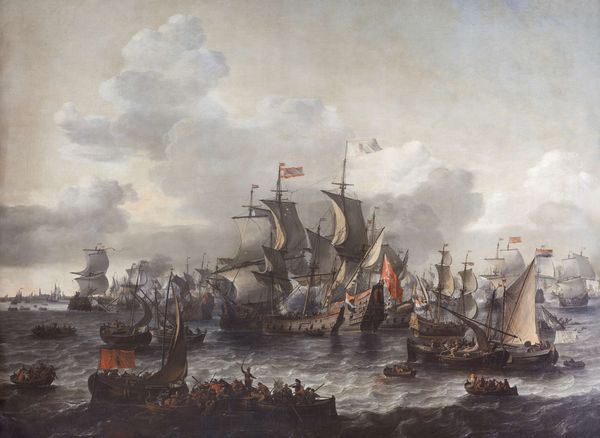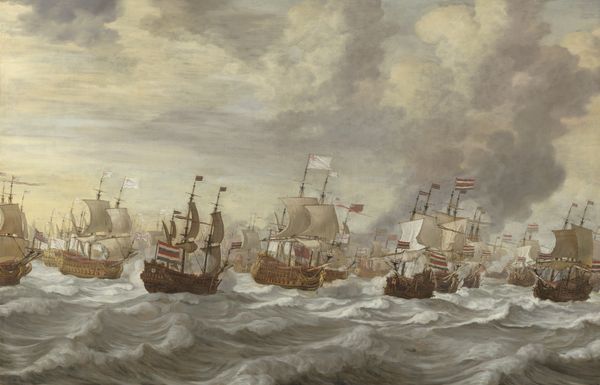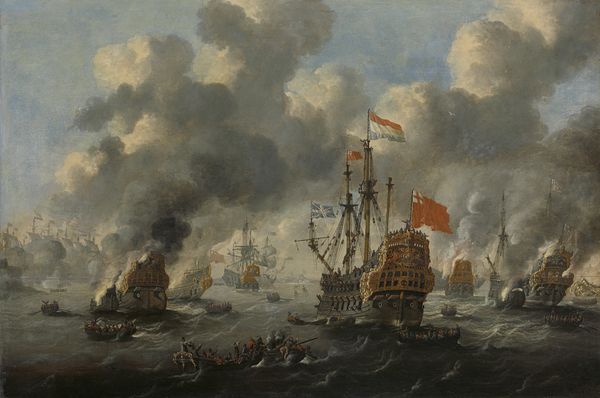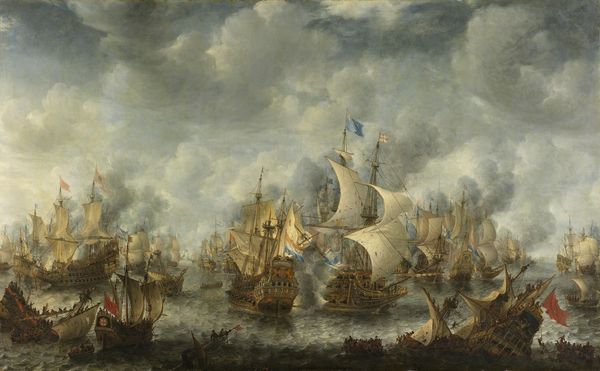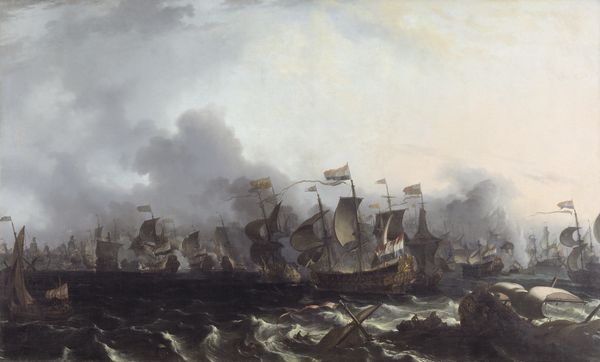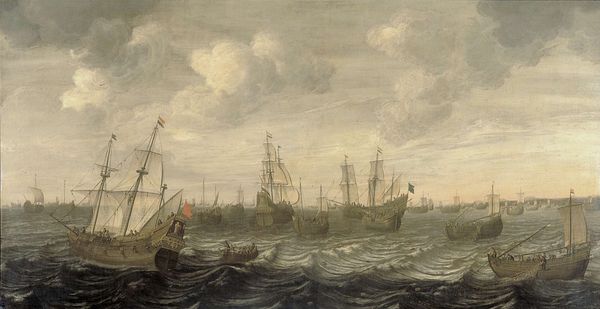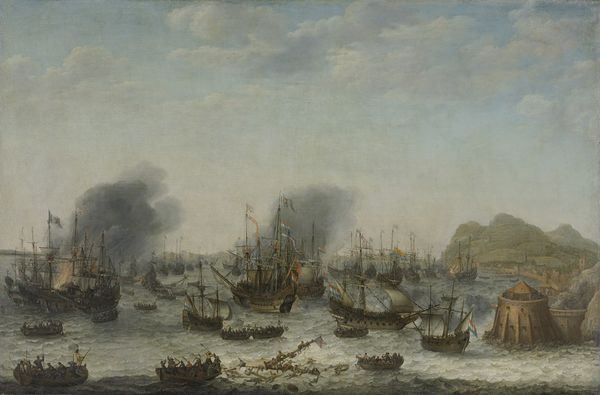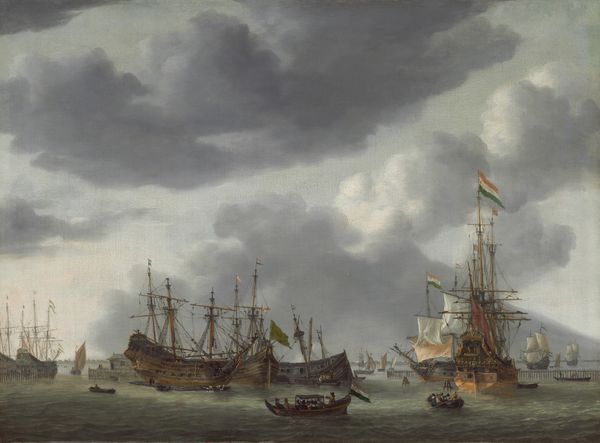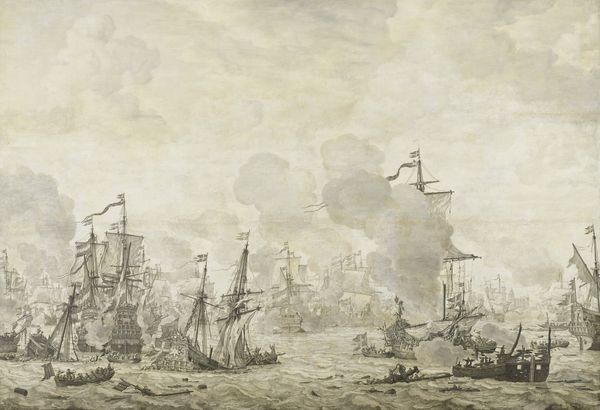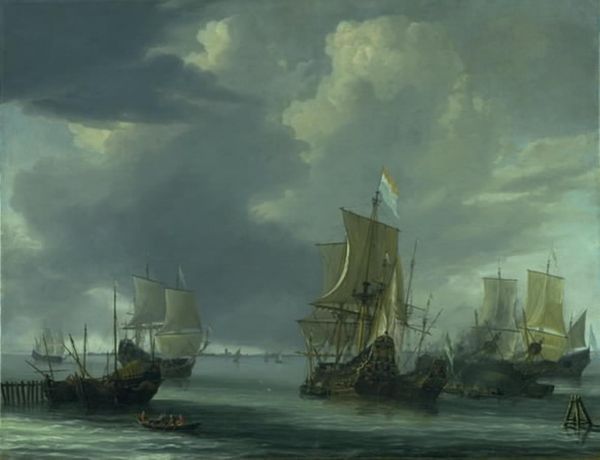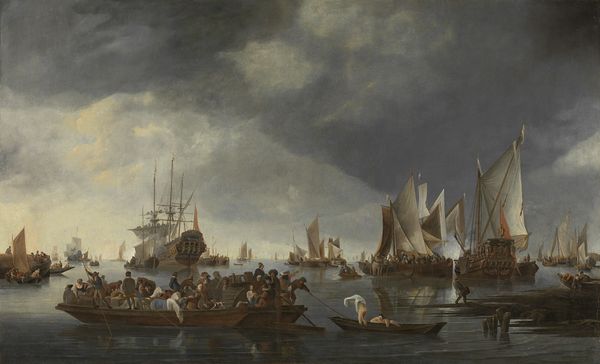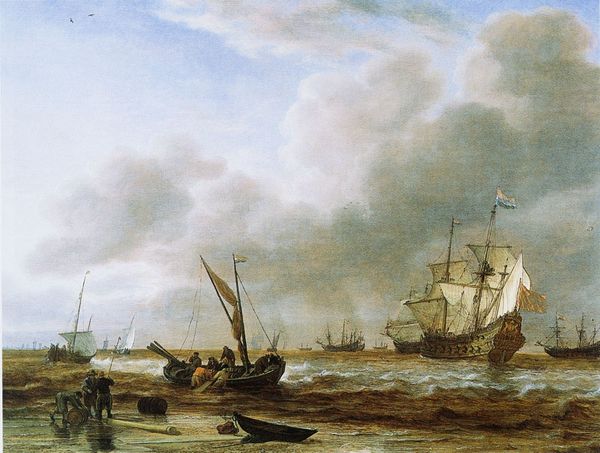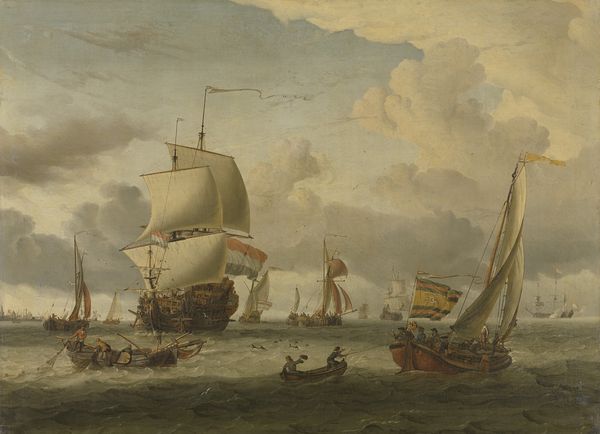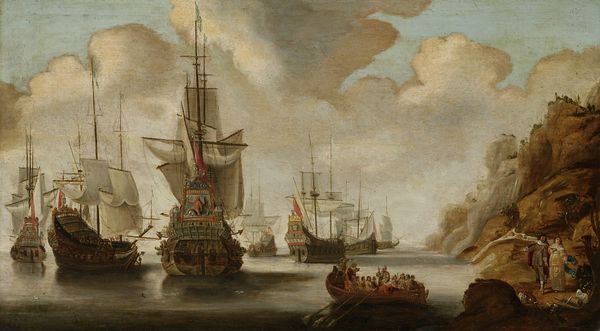
painting, oil-paint
#
narrative-art
#
baroque
#
dutch-golden-age
#
painting
#
oil-paint
#
landscape
#
cityscape
#
watercolor
#
realism
Dimensions: height 50.5 cm, width 66.5 cm, depth 6 cm
Copyright: Rijks Museum: Open Domain
Editor: We’re looking at "Whaling Grounds in the Arctic Ocean," painted between 1654 and 1708 by Abraham Storck. It's oil on canvas, and the scene is pretty stark: ships amidst ice floes, men and polar bears struggling…it feels so tense. What’s your take on this piece? Curator: That tension speaks volumes about the colonial endeavor. Storck presents the Dutch Golden Age, yes, but what are the costs? We see the Dutch flag proudly displayed, the ships central, but the environment is hostile, the labor brutal. This isn’t simply a picturesque scene of industry. It's about domination, resource extraction, and the violence inflicted upon both animals and the environment in the name of economic gain. Editor: So, the polar bears aren't just, you know, *there*. Curator: Exactly! They are part of this broader system of exploitation. The painting implicitly questions the narrative of progress. The arctic becomes a site of contestation – humans versus nature, colonizer versus the colonized. It subtly critiques the environmental impact of unchecked capitalism. Think about what this scene represents: disruption of ecosystems, decimation of whale populations, and the commodification of nature. Who benefits from this "golden age"? Editor: It's interesting; you don't often think about environmentalism and art history intersecting that far back. Curator: It’s crucial to remember that the seeds of our current ecological crisis were sown long ago. Art like this helps us see those connections and challenges the romanticized versions of history. We must ask, whose stories are told, and whose are erased in these representations of power? What’s the real cost of those grand ships sailing on the horizon? Editor: That’s given me a lot to consider. It definitely shifts how I view not only this painting, but similar works from that era. Curator: And hopefully prompts us to reflect on our present and future.
Comments
rijksmuseum over 2 years ago
⋮
Three Dutch whalers navigate the Arctic Ocean amid walruses and ice floes. The crewmen are hunting whales, while simultaneously trying to fight off polar bears. The demand for train oil (oil from the blubber of whales, walruses and seals) had increased greatly in Europe because it proved to be a good alternative to vegetable oils, from which candles, lubricants, lamp oil and soap were made.
Join the conversation
Join millions of artists and users on Artera today and experience the ultimate creative platform.
